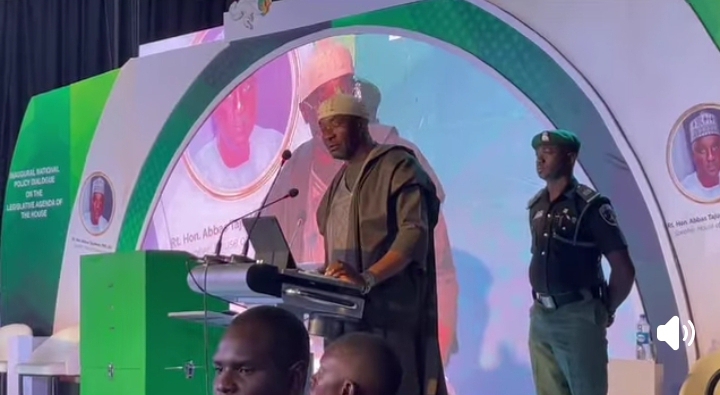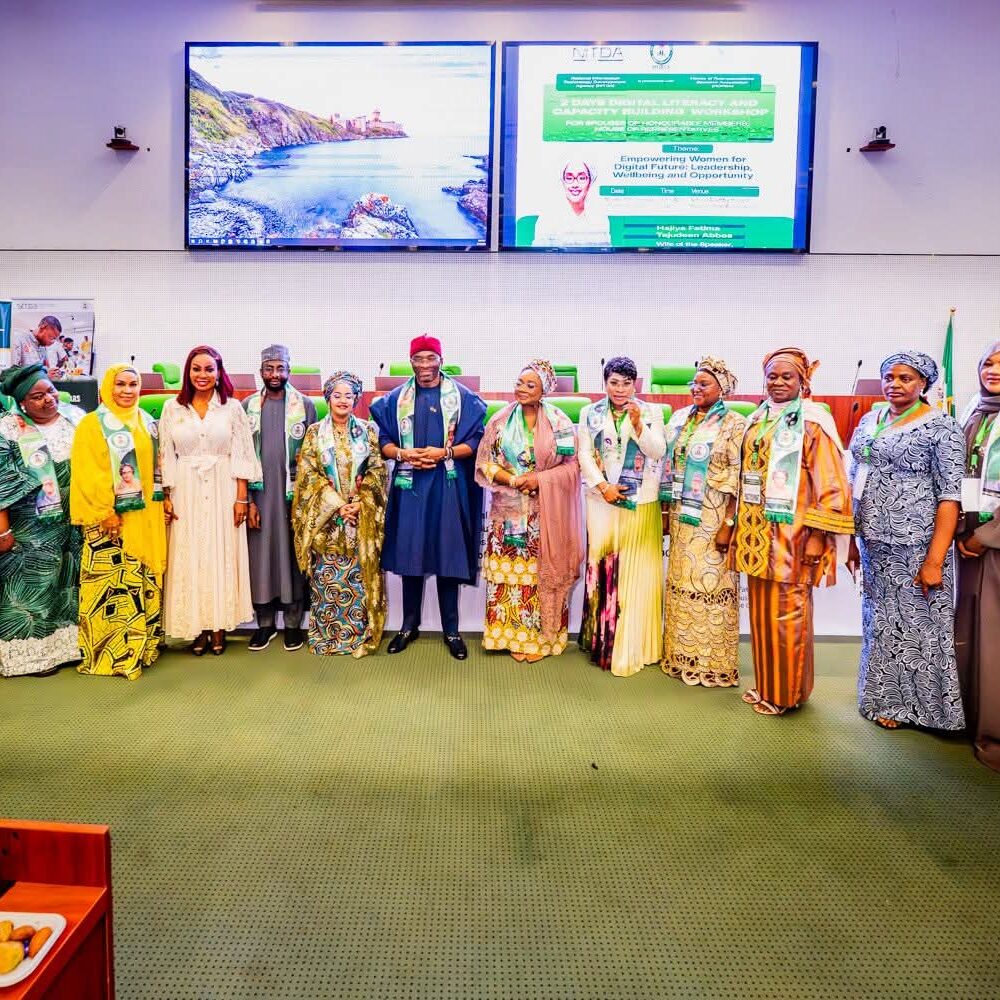The Deputy Speaker of the House of Representatives,Rt Hon.Benjamin Kalu has unveiled the House’s eight-pillar Legislative Agenda, aligning with President Bola Ahmed Tinubu’s Renewed Hope Agenda, at the inaugural National Policy Dialogue on the Legislative Agenda held in Abuja.
The event, described as a landmark platform for inclusive policy engagement, brought together lawmakers, policymakers, academics, civil society, and development partners to deliberate on legislative priorities that will shape the country’s future.
In a welcome address, the Deputy Speaker commended President Tinubu for his visionary leadership and transformative reforms, particularly in fiscal restructuring and security, which he said have laid a resilient foundation for national prosperity.
“Under President Tinubu’s stewardship, Nigeria is transitioning from potential to performance, from despair to hope,” he said.
He further lauded the Speaker of the House, Rt. Hon. Abbas Tajudeen, under whose leadership the 10th House has, since its inauguration on June 13, 2023, considered over 1,059 bills across key sectors such as education, health, economy, security, and governance.
The Deputy Speaker presented the House’s Legislative Agenda 2.0, a comprehensive framework structured into eight thematic pillars, crafted to align with the administration’s national development goals:
1. Good Governance & Anti-Corruption – including e-Parliament modernization, audit oversight enhancement, and separation of executive-judicial functions.
2. National Security – prioritizing police reform bills, modernization of intelligence sharing, and integration of private CCTV networks.
3. Social Sector Development – establishment of new tertiary institutions, amendments to the Student Loan Access Act, and expansion of youth welfare schemes.
4. Inclusive & Open Parliament – introduction of the Special Seats Bill for women, youth quotas, and diaspora voting rights reforms.
5. Economic Growth & Diversification – proposals such as citizenship-by-investment, repeal of export prohibitions, and agricultural credit schemes.
6. Fiscal Federalism & Resource Control – devolution of mineral and water rights and review of revenue-sharing formulas.
7. Environmental Sustainability – creation of the Nigeria Climate Change Fund and Bio-Fuels Energy Regulatory Commission.
8. Law Reform & Constitutional Review – over 30 constitutional amendment bills, including local government autonomy and a potential parliamentary system transition.
Kalu commended Hon. Cyril Hart Godwin and Hon. Chinwe Nnabuife Clara for their critical role in monitoring and evaluating the implementation of the legislative agenda, ensured that the laws passed are impactful and responsive.
Highlighting the objectives of the Policy Dialogue, the Deputy Speaker said the platform seeks to foster inclusive engagement, identify legislative gaps, strengthen partnerships, and promote transparency in the legislative process.
“By the end of this Dialogue, we expect enhanced understanding of our legislative priorities, integration of stakeholder input, development of evidence-based policy briefs, and the institutionalization of this Dialogue as an annual event,” he said.
He also cited key wins under the Renewed Hope Agenda, including the unification of exchange-rate windows, increased capital inflows in the energy and technology sectors, and the passage of four tax reform laws aimed at eliminating multiple taxation and boosting productivity.
“Our legislative agenda is designed not just to pass laws, but to measure their impact in real time and ensure they improve the lives of Nigerians,” he added.
The Deputy Speaker acknowledged the support of international development partners including the European Union, the British High Commission, UK International Development, Policy and Legal Advocacy Centre (PLAC), and the National Assembly Library Trust Fund, for their technical assistance and commitment to legislative excellence.
As the Dialogue commenced, he urged participants to take advantage of the platform to interrogate, refine, and co-create a legislative roadmap that addresses Nigeria’s most pressing challenges.
“Through collaborative problem-solving, we can craft laws that reflect our collective aspirations and secure a future of shared prosperity and democratic strength,” he concluded.





